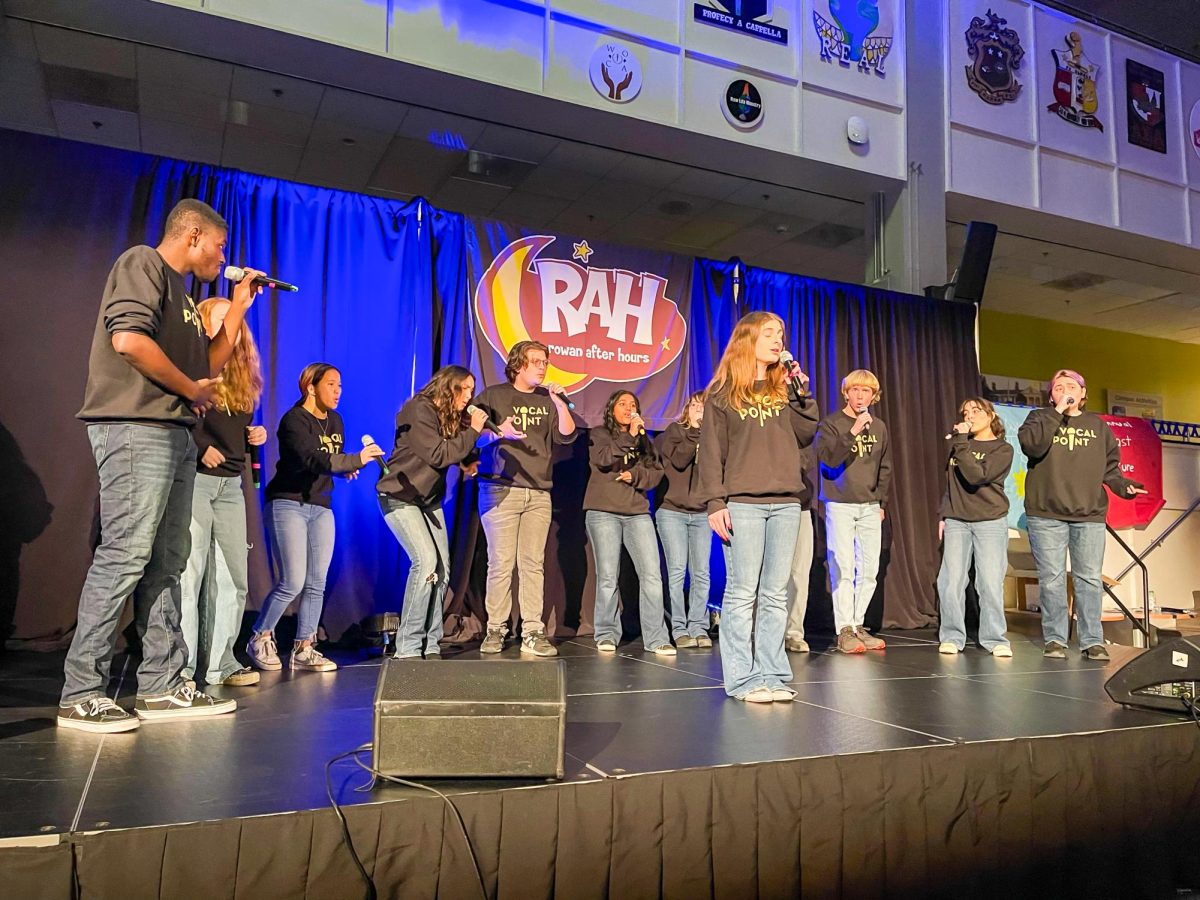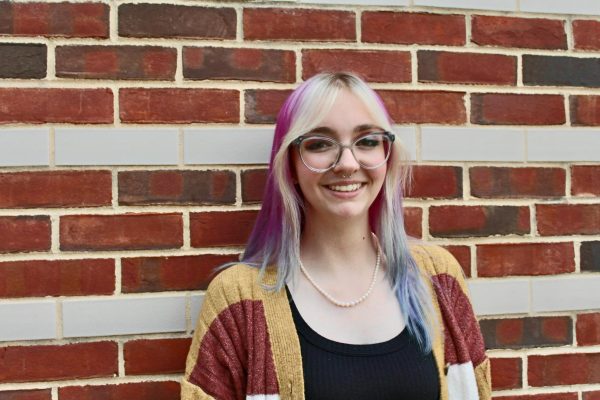On Friday night, Nov. 15, Rowan After Hours, in conjunction with student acapella group Profecy, hosted the annual RAHcapella, a night which many have compared to the movie Pitch Perfect.
Contrary to Pitch Perfect, however, RAHcapella is about building camaraderie, not competition, between student-run acapella groups.
This event boasted 10 acapella groups: Orphan Sporks, Vocal Point, Synchronize, Liachorus, Trentones, Rowan Vocals, 8ual Harmony, Kee to the Bar, Casping It Trill, and the host group, Prophecy. It spanned three states: New Jersey, Pennsylvania, and Delaware.
Throughout the night, the audience heard vocal renditions of various pop and hip-hop classics, from RoVo’s Don’t Stop Me Now by Queen to Orphan Sporks’ Sunlight by Hozier.
To kick off the night, Katie Lanserati, president of Profecy, gave a brief introduction to RAHcapella and introduced the Orphan Sporks of Rutgers University via a fun fact.
“A fun fact about them is the story of how their name came to be is a mystery to them as well. Welcome to collegiate acapella,” said Lanzerotti.
The whimsical nature of their name did not detract from their performance, which set the bar for a night of vocal music.
Acapella music is known for being sung entirely without instruments. Instead, the human voice is used to recreate backing music and harmonies to simulate instruments like piano and guitar or even woodwinds, and also to create rhythm. Throughout the night, there was a lot of clapping and stomping.
Most iconic to a capella, of course, is beatboxing, wherein vocalists create a variety of sounds that can sound like drums and other percussion instruments, or even modern instruments like synths or 808s.
Before performing, Justin Kurbansade of Rowan Vocals addressed the crowd.
“Thank you RAH for hosting, and thank you Profecy,” said Kurbansade.
RoVo’s performance was one of nostalgia, opening strong with Queen’s Don’t Stop Me Now. This performance highlighted the inherent theatricality of acapella, as the soloist went through the journey of the song through his facial expressions and the emotions of his voice.
Later in the evening, Keeping it Trill from Widener University performed a smooth, calming arrangement of Ocean Eyes by Billie Eilish. The soloists offered their unique spin to the song, just as many soloists had done throughout the night.
An interesting feature of a capella groups is that they provide a space for students to showcase their talents, or blend into the harmonies in the background.
So, for example, one student from Rutgers’ Casual Harmony added quite a few riffs and runs to the melody of Take On Me by a-ha. This made the performance entirely his own, even while a capella groups of course lean on the familiarity of the music they perform to build and retain an audience.
Overall, RAHcapella was a successful night of singing, with audience members cheering and whistling for beautiful runs or astounding high notes, and at the end of the night many performers received accolades and gifts from audience members there to see them.
For comments/questions about this story DM us on Instagram @thewhitatrowan or email [email protected].























































































































































!["Working with [Dr. Lynch] is always a learning experience for me. She is a treasure,” said Thomas. - Staff Writer / Kacie Scibilia](https://thewhitonline.com/wp-content/uploads/2025/04/choir-1-1200x694.jpg)









































